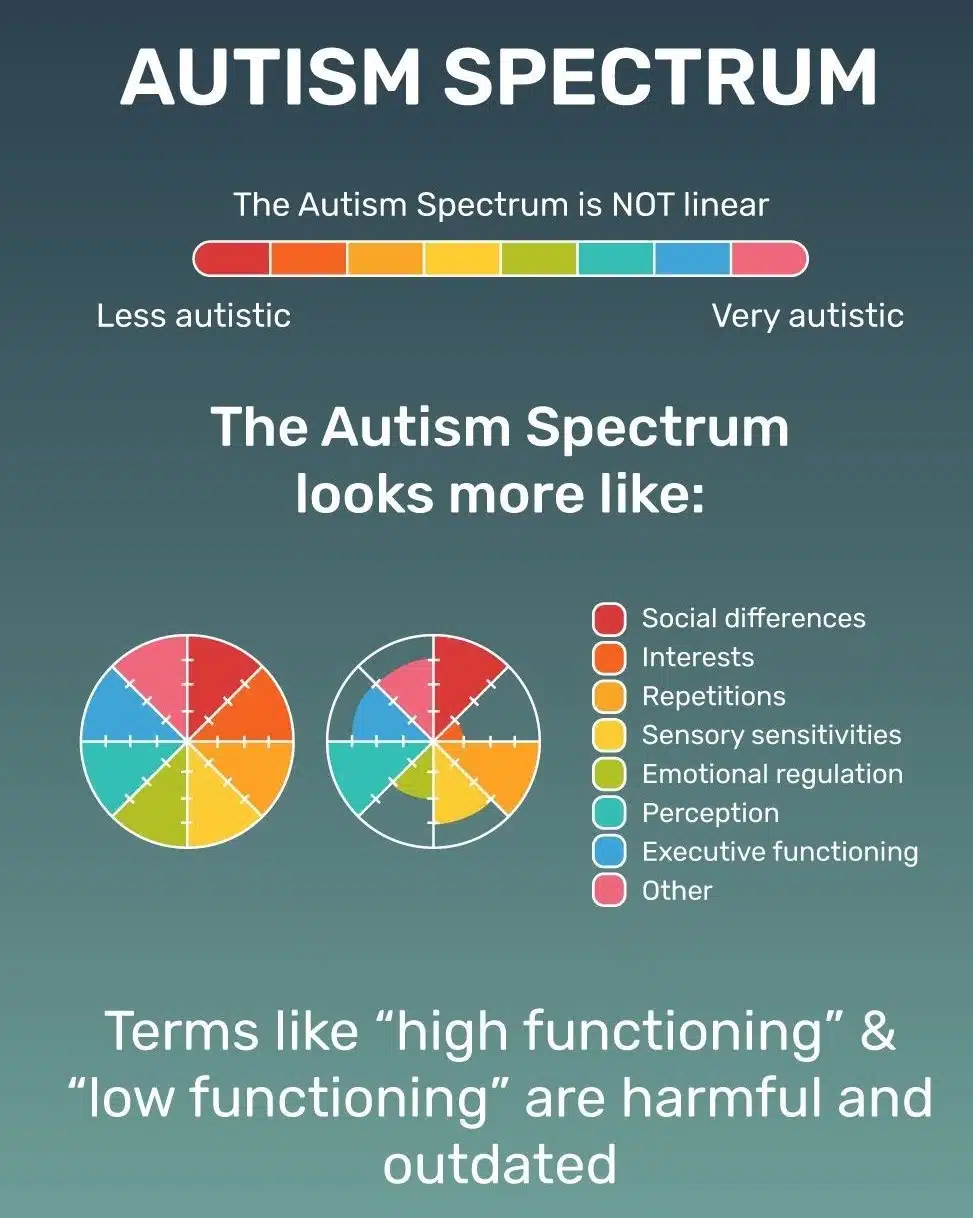Low functioning autism is a type of autism spectrum disorder (ASD) that affects a person’s ability to communicate, understand social cues, and have typical interactions with others. People with low functioning autism may have trouble speaking, expressing themselves, and understanding others. Everyday tasks may be difficult for them, and they may need help with basic needs like dressing, eating, and using the bathroom. They may engross in repetitive behaviors, like rocking back and forth, and may have strong interests in specific objects or activities. People with low functioning autism may also have other medical or developmental problems, like intellectual disability, seizures, or sleep problems. Despite these challenges, people with low functioning autism can still lead happy and fulfilling lives with the right support and resources.













